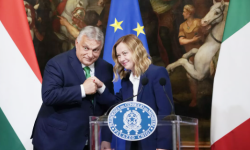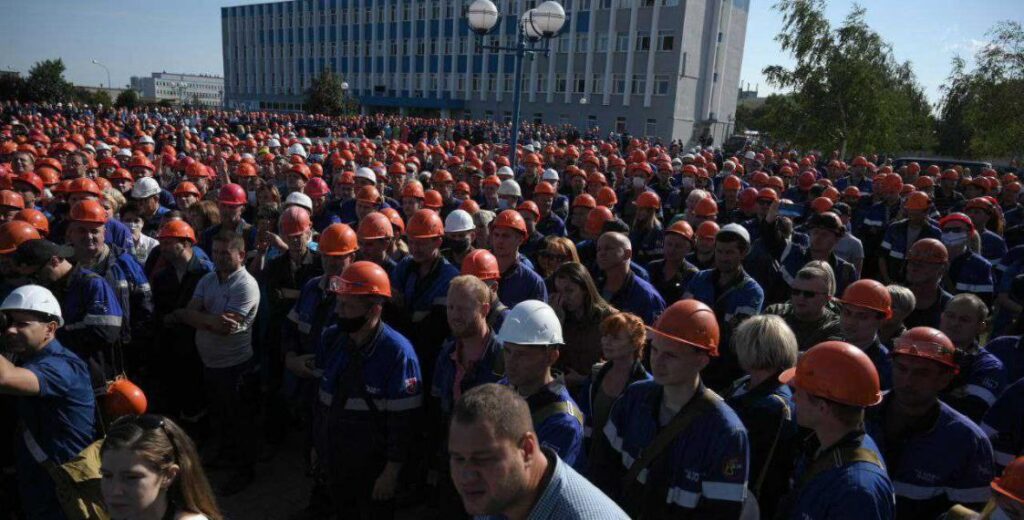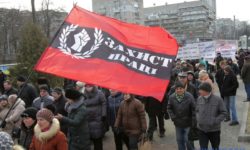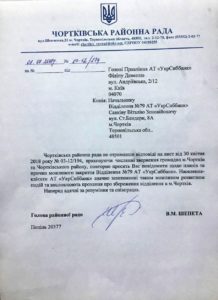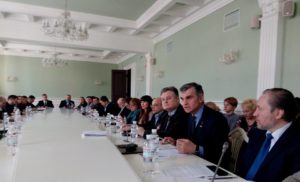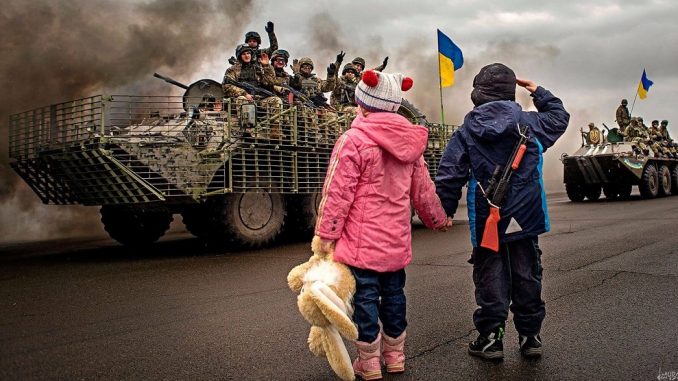
By Oleg Vernik, president of the All-Ukraine Independent Trade Union “Zakhist Pratsi”
The mutual escalation of tension surrounding the situation in Donbas poses a series of questions to the workers and union activists of Ukraine, to which it is quite difficult to give a simple and complete answer. However, life itself demands of us a prompt answer, a complex and honest analysis. The following aspects are very important factors for the formation of the policy of the workers.
Russian context
The regime of Vladimir Putin received a quite severe blow to its power during the recent massive protests associated to the arrest of Alexei Navalny. The working class of Russia make are not deluded about Navalny’s personality but actively participated in the street protests. We have to admit that, in many aspects, the fear to a repressive authoritarian system among the broad popular masses has begun to disappear slowly but surely. More and more often we receive news from Russia about workers’ protests that have a clear social and class character. It is becoming increasingly difficult for Russian liberals to maintain their stranglehold on the Russian protest movement. The voices of the working class are being heard more and more clearly.
The ongoing U.S. and EU economic sanctions against the Russian Federation throw more and more segments of the bourgeoisie into discontent, from the largest to the smallest, into opposition to Putin’s bonapartist oligarchic regime. And the unprecedented cynical support for Belarusian President Alexander Lukashenko, who openly falsified the results of the presidential elections, finally dispelled illusions about the formation of a new geopolitical axis of Moscow-Berlin-Paris. The catastrophically unsuccessful international policy of Russian imperialism only exacerbated the glaring failures of its domestic policy.
According to the Central Bank of the Russian Federation, inflation in the country reached 5.8% and became a record high since 2016. Food inflation has accelerated almost three times over the past 12 months. The prices of several key commodities (butter, vegetables, sugar, eggs) have almost doubled. The industrial and service sectors received virtually no support from the Russian government during the COVID-19 pandemic and, as an expected result, all their burdens fell on the shoulders of the workers themselves.
Does Putin need, in this catastrophic situation for him, a foreign policy and political maneuver associated with distraction of the working people of Russia from the internal problems of the country by “armed protection of the residents of Donbas from the Ukrainian fascists”? Our answer is YES! Moreover, from the point of view of this policy, the Russian government does not care at all whether it starts a real war or whether everything will be limited to simply raising rates in the inter-imperialist negotiation. Putin’s main goal will be achieved: he has distracted the attention of the Russians from the internal problems of the country by making gun noises near the Ukrainian borders and cynical calls for the rescue of the residents of Donbas from the “Ukrainian fascists barricaded in Kiev”.
Ukrainian context
It is already obvious to everyone that the extremely weak and contradictory policy of President Volodymir Zelensky at the beginning of 2021 led to a crushing fall in his personal rating. And if the real rating of his party “Servant of the People” in mid-2020 was confidently fighting for the indicator of absolute zero, his personal charisma of a comedian known in the country saved the new government for some time. But by February 2021, this margin of safety has obviously been completely exhausted.
In the context of a long war of positions with Russia, Zelensky was never able to completely normalize relations with the countries of the European Union and the United States. The new U.S. president perfectly saw all Zelensky’s hesitations before the U.S. elections. And, of course, he did not escape the Ukrainian president’s attempts to “sit on two chairs”, especially in the context of the opening in Ukraine of a criminal case for corruption in the firm Burisma, where Biden Jr. worked. Since his inauguration, Biden has never (!) contacted the Ukrainian President Zelensky, and only the hype around a possible Russian attack on Ukraine made him make a courtesy call and make promises of support.
At the same time, Ukraine’s dependence on various instruments of Western imperialism increases every day. The International Monetary Fund, the European Bank, various politicians and businessmen affiliated with George Soros and other global financial players together form the apparatus of the so-called “External Control”. During the reign of President Zelensky, the regime of “External Control” in Ukraine has already passed the law on privatization of land, the law on raising the retirement age, the law on complete dependence of the National Bank of Ukraine on external institutions, and is now pushing through anti-labor changes to the Labor Code, depriving the working class of the legal mechanisms of struggle for their labor and social rights. When Russian imperialism uses the factor of direct armed aggression and annexation of Ukrainian territory to pressure Ukraine, then Western imperialism uses its full arsenal of economic levers of strangulation.
Since late autumn 2020, for the first time in many decades of its independence, a massive wave of social protest movement of workers began in Ukraine against a sharp increase in utility tariffs associated with the appetites of Ukrainian oligarchs who control energy companies. In many regions of Ukraine, protesting workers blocked roads and held mass protests near the offices of private energy and distribution companies. By the end of January 2021, the social agenda “Stop tariff genocide!” finally prevailed and Zelensky’s team found itself in an extremely difficult situation. Attempts to intimidate protesters by law enforcement agencies and declare them “agents of the Kremlin” only intensified the negativity and hatred in the mass consciousness of Ukrainians towards Zelensky’s power.
Does Zelensky need in this catastrophic situation for him a political maneuver associated with distracting Ukrainian workers from the internal and external problems of the country by calling for “repelling Russian military aggression against Ukraine”? Our answer is YES! The recent closure of pro-Russian oligarch Medvedchuk’s TV channels and the artificial stoking of hysteria with a patriotic agenda unequivocally points to the desired scenario for Zelensky, associated with the war in Donbas.
The likelihood of war and the workers’ agenda.
The Ukrainian authorities, like the Russian authorities, simply act in a mirror image of each other. However, the very likelihood of war is far from certain. Despite the fact that 21 Ukrainian soldiers have already died in Donbas since the beginning of 2021, the likelihood of a hot phase of war remains highly uncertain. Both sides of the conflict, as well as pro-Russian “representatives” of the DPR / LPR quasi-formations, make demonstrative statements that clearly aim at raising tensions. Facing the world, Russia demonstratively drives a large number of soldiers and weapons to its western borders with Ukraine. In turn, Ukraine announces that it is prepared for a massive mobilization and puts its military reserves in a state of combat readiness. However, this explosive situation need not necessarily be resolved by a bloody war. It is also possible that we are facing the eventuality of some kind of global inter-imperialist “agreement”, for which all explicit and implicit parties to the conflict in Donbas are now raising the stakes. After all, not a single war in the history of mankind began with an intentional worldwide news hype about it and its numerous announcements in the world press.
The Ukrainian working class, of course, is aware of the real aims of the present “war puppeteers”. Less and less confidence in it is provoked by the hysterical cries of the Ukrainian bourgeois power about the inevitability of war and the readiness of the people for another mass self-sacrifice. Moreover, you will not find representatives of the bourgeoisie and the state apparatus at the forefront of the daytime shooting war. The main burden of any war falls on the working class. The Ukrainian working class will constantly fight against Russian imperialist aggression but no one has the desire to play ball with Western imperialism either! Our slogans of the moment are simple and obvious to all Ukrainian workers:
- Russian imperialism Out of Ukraine!
- Workers of Donbas, unite with the workers of all Ukraine in a single anti-capitalist struggle,
- Western imperialism Out of Ukraine!
- Down with capitalism, Long live workers’ power!




